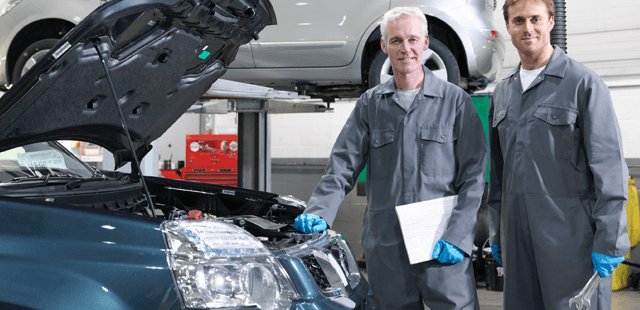All Categories
Featured
Normal engine tune-ups are necessary for keeping your car's performance, boosting fuel effectiveness, and extending its lifespan. Whether you're a seasoned car owner or a newbie, understanding the crucial facets of an engine tune-up can help you keep your cars and truck running smoothly for years. Right here are some important pointers to lead you with the process.
- Change the Glow Plugs. Ignition system are little yet mighty parts that play a crucial function in igniting the fuel-air blend in your engine. In time, they can break or become fouled, causing inadequate engine performance, decreased fuel efficiency, and hard begins.
Throughout a tune-up, inspect your spark plugs for wear and change them as required. For the majority of automobiles, stimulate plugs must be changed every 30,000 to 100,000 miles, depending on the kind and material. Fresh ignition system ensure effective combustion and smoother engine procedure.
- Inspect and Replace the Air Filter. The air filter is your engine's first line of protection versus dust, debris, and various other pollutants. A stopped up or unclean air filter can restrict air movement, triggering your engine to function tougher and take in even more fuel.
Examine your air filter during a tune-up and replace it if it's dirty or past its advisable service period. A tidy air filter boosts engine effectiveness and improves fuel economy.
- Inspect the Fuel System. With time, your fuel system can accumulate dirt and carbon down payments, lowering engine performance and fuel performance. Cleansing the gas injectors and gas lines during a tune-up helps keep proper fuel distribution and burning.
You can utilize a gas system cleaner or have a professional mechanic execute a more thorough cleansing. This action is especially valuable for older lorries or cars often driven in stop-and-go web traffic.
- Evaluate the Belts and Hoses. Belts and hoses are vital for numerous engine features, such as running the generator, water pump, and cooling. During a tune-up, check for fractures, fraying, or indicators of wear on these elements.
Change any type of damaged belts and hose pipes to stop possible breakdowns. A busted belt or dripping pipe can cause engine getting too hot or loss of power, so attending to these concerns promptly is crucial.
- Replace the Engine Oil and Oil Filter. Engine oil is crucial for lubricating moving components, reducing rubbing, and managing engine temperature. Gradually, oil ends up being infected and loses its performance.
As part of a tune-up, replace the engine oil and oil filter. Utilize the kind of oil recommended by your car's producer and adhere to the recommended adjustment intervals. Tidy oil maintains your engine running efficiently and avoids premature wear.
- Check the Battery and Charging System. A healthy battery is crucial for starting your cars and truck and powering its electrical systems. Throughout a tune-up, check the battery's voltage and evaluate the terminals for corrosion. Tidy the terminals if required and make sure a safe link.
Furthermore, examination the alternator and charging system to guarantee your battery stays billed during procedure. If your battery is weak or old, think about replacing it to stay clear of unanticipated malfunctions.
- Flush and Replenish the Coolant. The air conditioning system manages your engine's temperature level, stopping it from overheating. Old or infected coolant can lose its efficiency, leading to possible engine damage.
Throughout a tune-up, flush the old coolant and change it with a fresh mixture. Check the radiator, thermostat, and hose pipes for leaks or damage. Keeping the air conditioning system in good condition guarantees your engine operates at the appropriate temperature level.

- Address Caution Lights and Uncommon Symptoms. Modern lorries are equipped with analysis systems that notify you to prospective problems through control panel caution lights. If your check engine light or any type of various other cautioning signs are on, resolve them during your tune-up.
Additionally, take note of uncommon signs such as weird noises, rough idling, or reduced gas performance. A professional technician can detect and settle these issues during the tune-up procedure.
- Do Not Forget the Exhaust System. Your automobile's exhaust system eliminates unsafe gases from the engine and guarantees appropriate emissions. Evaluate the exhaust system for leaks, rust, or damage during a tune-up. A defective exhaust system can influence engine performance and result in ecological and safety issues.
- Use High-Quality Parts and Fluids. When replacing components or rounding off fluids throughout a tune-up, always select premium items that satisfy your lorry's specifications. Using substandard parts or wrong fluids can adversely affect your engine's efficiency and longevity.
Verdict: Normal Tune-Ups Are Key to Engine Health And Wellness. Putting in the time to tune up your engine guarantees it operates effectively, conserves fuel, and decreases the risk of breakdowns. Whether you carry out these tasks on your own or count on a relied on mechanic, regular tune-ups are an investment in your car's dependability and longevity. Adhere to these pointers, and you'll appreciate a smoother, much more reputable adventure for years to come.
Latest Posts
Explore Cost-Effective Auto Repairs with Montclare’s Limited-Time Service Specials
Join WyHy FCU – Essential Perks for Your Financial Future
Explore the Storied Past of Deauville Inn: From Speakeasy to Jersey Shore Icon
More
Latest Posts
Explore Cost-Effective Auto Repairs with Montclare’s Limited-Time Service Specials
Join WyHy FCU – Essential Perks for Your Financial Future
Explore the Storied Past of Deauville Inn: From Speakeasy to Jersey Shore Icon
